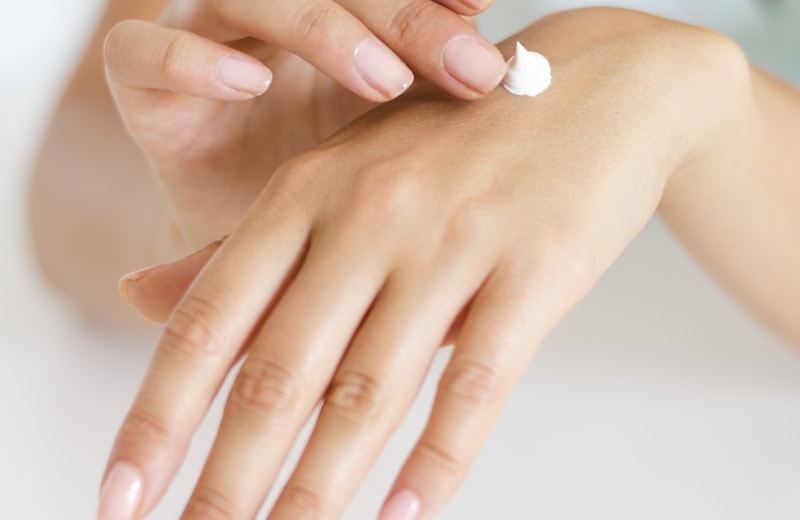Psoriasis is an inflammatory, chronic skin condition that is non-contagious. The disease produces plaques of scaling and thickened skin. One of the effects of dry flakes of skin is the rapid proliferation of the cells involved. This is often triggered by lymphocytes, which are specialized blood cells produced by inflammatory chemicals.
It affects the skin of the knees, scalp, and elbows commonly. The disease spectrum ranges from mild with the involvement of small to large areas of the skin to red inflamed, which affects the entire body. It affects both sexes and all races. The disease is also common in people of all ages. However, patients are first diagnosed with the disease in their early years of adulthood. People with psoriasis have recently been found to suffer from other chronic conditions such as cardiovascular disease, diabetes, high blood lipids, and several other inflammatory ailments. Additionally, people suffering from psoriasis have a diminished quality of life due to their skin’s appearance.

Although the illness is not contagious, it is common for members of the same family to suffer from it. There is no treatment for the ailment, but there are a few remedies that are effective in treating it as highlighted below.
1. Photodynamic Therapy
Photodynamic therapy has been the most effective form of treatment with the clearance of plaque, following topical aminolevulinic acid. The photodynamic therapy, however, has proved to be more suitable for chronic plaque psoriasis. Additionally, photodynamic therapy is often useful when combined with other treatment such as ultraviolet light therapy. The treatment involves the local or systemic application of a photosensitizing compound, which is followed by the illumination of the lesion in visible light.
2. Steroids
There are several steroid medications that are used for treating this disease. However, the most effective one that is often used in psoriasis treatment is topical steroids. Topical steroids produce adrenal glands, which are corticosteroids hormones. Corticosteroids are functional in the body, which includes controlling inflammatory response. Therefore, they are used as anti-inflammatory agents that reduce the redness of lesions and swelling in the body.
However, steroids medication comes in different strengths from super potent, which is very strong and least potent, which is very weak. When applying steroids medication, it’s important to start with small portions of affected skin and advance as you note the changes. Also, you are not allowed to use this treatment for more than three weeks.
3. Vitamin A Derivative
Vitamin A derivative is essential for healthy skin growth. Vitamin A, commonly known as retinol, has been in use for several years in treating conditions such as photo-damage and acne that is induced by the sun. You can either apply the Vitamin A derivative directly to the skin or take it orally. Vitamin A derivative binds some receptors in the skin cells to prevent the rate at which skin cells renew themselves and develop. It also reduces inflammation, therefore, keeping the disease under control. For patients with the severe or stubborn type of the illness, taking a vitamin A derivative orally is the most recommended form of treatment.
4. Immunosuppressive Drug
An immunosuppressive drug is a class of several substances that reduce or suppress the strength of the immune system in the body. Some of them ensure that the body does not reject transplanted organs while others are used for treating disorders such as psoriasis, rheumatoid arthritis, and lupus. Psoriasis is an autoimmune disease; it affects the body’s tissues by attacking self-cells, therefore, the immunosuppressant drug helps the body by boosting the immune system and suppressing the reaction, hence reducing the impact of the ailment’s effects.
5. Stress Management
Psoriasis is a genetic condition, which is often triggered by environmental factors. People who experience stressful events in life are also at a high risk of contracting this condition. Therefore, if you avoid psychological stress, you are likely to eliminate the chances of becoming a victim. Stress and psoriasis are intricately linked. Stress management is the best way of treating it. Patients, who are under any form of stress, are likely to experience flare ups of the disease.
6. Coal Tar Extract
Coal tar therapy is the most common form of treatment. Interestingly, it has been used by dermatologists for more than a century. Coal tar extract is a topical treatment for acute scalp psoriasis. The extract contains anti-scaling and anti-inflammatory properties that are common for managing chronic plaques. However, the treatment has several side effects that most patients with the conditions are not able to tolerate. The treatment also takes longer to show signs of improvement. Also, when extended to other parts of the skin where the disease has not affected, it places it at risk. However, you can combine it with ultraviolet B light to ensure quick treatment.
7. Ultraviolet Light Therapy
Ultraviolet light therapy is a conventional treatment that is used to treat skin disorders. The most effective treatment regimen for the disease involves light. Ultraviolet B spectrum is beneficial when it comes to reducing the effects of the condition. It has been confirmed that Ultraviolet light therapy is the safest and most effective way of treating the condition. It reduces inflammation and prevents the effects of the disease from spreading to other parts of the body. Additionally, ultraviolet light therapy works in several ways, which includes suppressing the immune system.
8. Moisturizer
Moisturizer is one of the most effective ways of taking care of your skin. For any skin condition, proper skin care is guaranteed to offer some form of treatment. However, for psoriasis, you must ensure to pick the right moisturizer to ensure you get the best results. Most symptoms of this condition include dryness, itching, and an unusual thickness. Moisturizing your skin regularly serves to reduce the effects of the symptoms and keeps the condition contained. To find the best moisturizer, read the ingredients carefully and consider using other topical skin treatments.